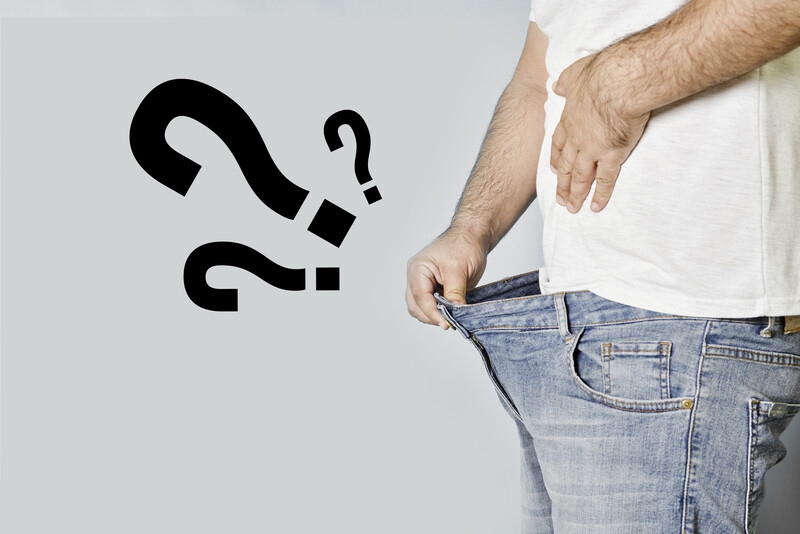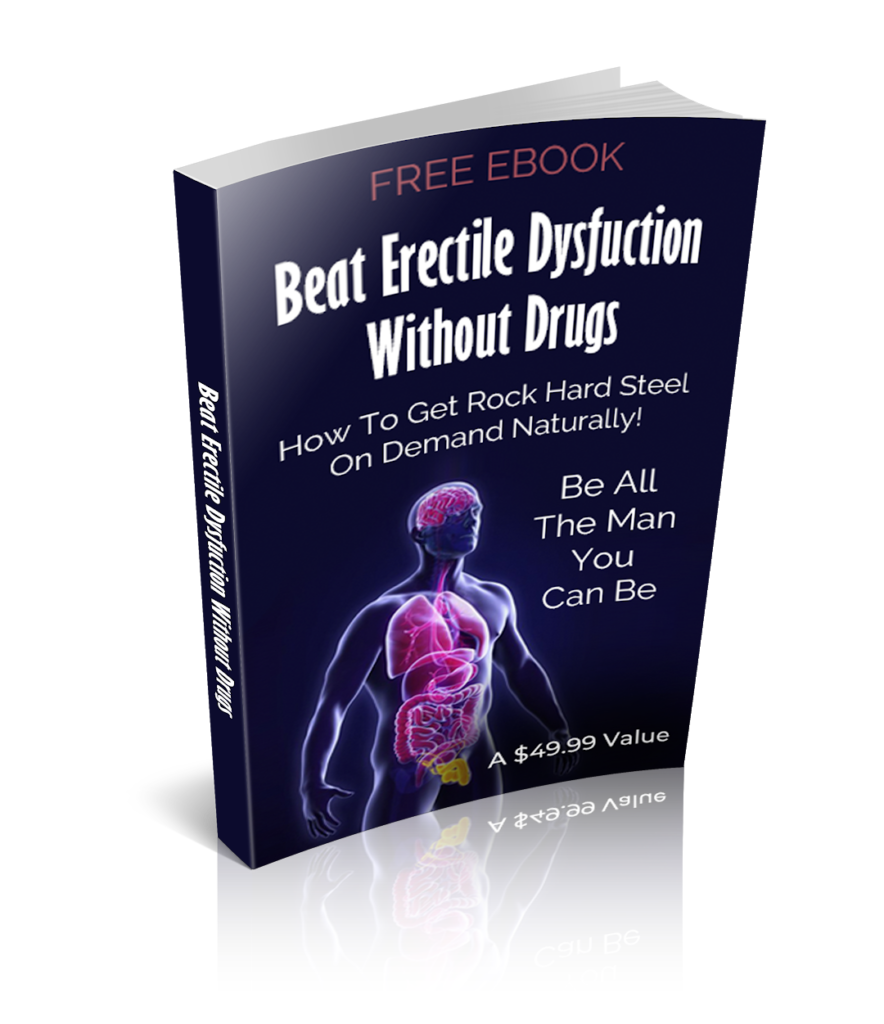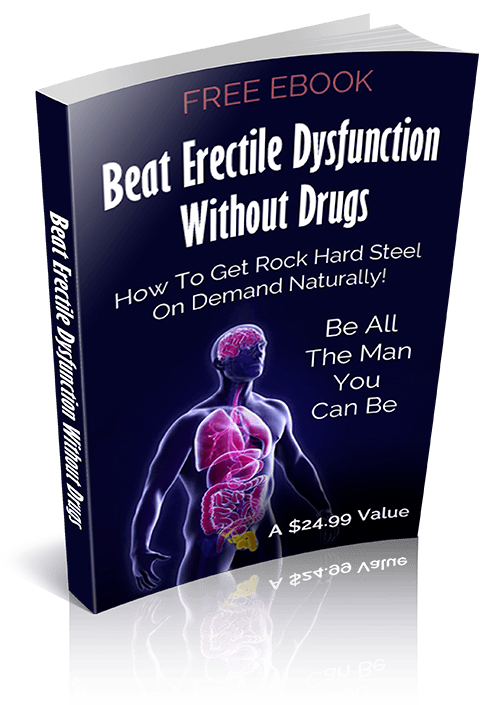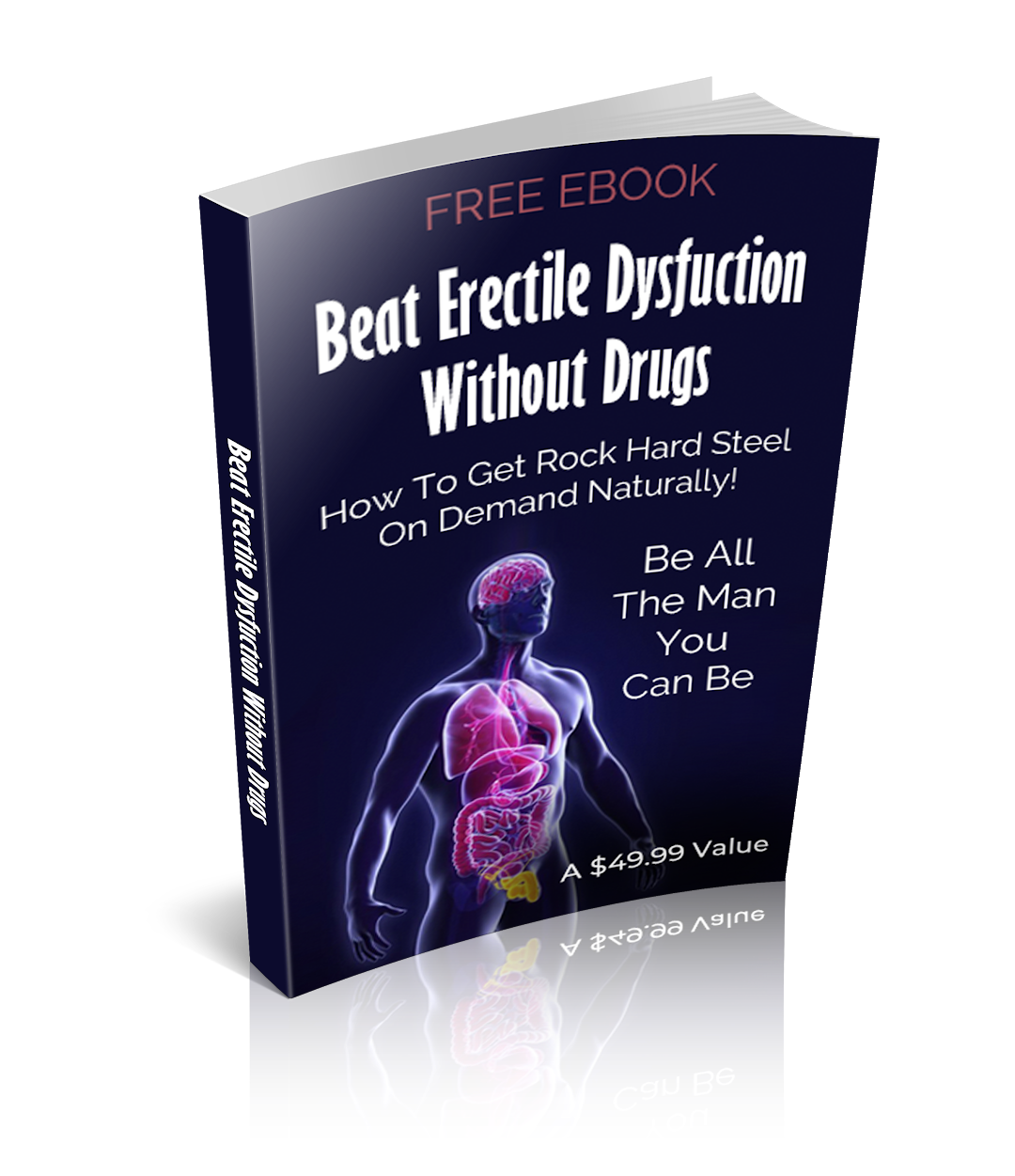(Article medically reviewed by Dr. Zac Hyde M.D)
5 Ways This OTC Histamine Torches Erections
If you wound up on this page after searching for info about Benadryl and Erectile Dysfunction, I have some bad news for you.
Histamine plays a key role in the erection process and this OTC medication eradicates histamine in your system.
And when histamine levels fall too low, you’re definitely going to have a hard time achieving an erection (more on this below).

But losing your boner isn’t the only problem with this drug because it also increases dementia risk, disrupts testicle function lowers nitric oxide and negatively impacts sleep, among other things.
Below our editorial team dives deep into these topics and once you’re finished, I’m sure you’ll think twice before using Benadryl.
Let’s get started…
Benadryl and Erectile Dysfunction Part 1:
Erectile dysfunction is becoming more common in the modern world. The sad truth is that many of the modern conveniences we rely on are contributing to this.
Im talking about things like chemicals, plastics that reduce testosterone, and processed foods.
The fact that many people now work longer hours and get less sleep also contributes to the problem.
Beat ED Without Drugs
Get Rock Hard Steel On Demand, Naturally!

Inside you will learn:
(Free Instant Download)
Certain pharmaceutical drugs are also known to cause erectile dysfunction. It depends on the drug, and not all drugs cause ED, but there are many which can and do cause erectile dysfunction.
Benadryl is a common anti-allergy drug that can help lessen the effects of allergens like pollen, animal dander, plants, and foods.
However, it’s not without risk.
Benadryl does have side effects. Most of them are not serious, but there is one that is very serious when it comes to male sexual health.
I’m talking about the fact that Benadryl can contribute to erectile dysfunction in men.
What is Benadryl?
Benadryl is really just a name that the pharmaceutical company made up for a drug called diphenhydramine. Diphenhydramine is an antihistamine.
Antihistamines like Benadryl are most often used to help reduce the effects of allergic reactions.
Benadryl is also used to help lessen the side effects of the common cold and hay fever, as well as symptoms caused by motion sickness.
Some people also use Benadryl to help them go to sleep since one of the primary effects of the drug is drowsiness.
However, this is also one of the reasons that Benadryl is a bad thing for your erections – more on that later.
Benadryl and Erectile Dysfunction (Common Side Effects)
Benadryl is available over-the-counter, so you don’t need a prescription to get it. However, as with any drug, Benadryl has its own side effects.
Meaning, while it might reduce your allergy symptoms, it will cause other issues.
The most common side effects are dry mouth, dry eyes, drowsiness, fatigue, blurred vision, upset stomach, and constipation.
Many people also complain that Benadryl makes them feel jittery and anxious, like they’ve consumed too much caffeine.
However, Benadryl can also cause more serious side effects.
You should tell your doctor right away if you experience drastic mood swings, confusion, difficulty urinating, or a fast or irregular heartbeat while taking Benadryl.
In rare cases, you can actually be allergic to the drug diphenhydramine that’s inside Benadryl. If this is the case for you, your allergy symptoms will very quickly get worse.
You might experience a rash, itching, swelling of the face or throat, dizziness, and even trouble breathing.
If you think you’re having an allergic reaction to Benadryl, stop reading this and call a doctor right away.
Benadryl and Erectile Dysfunction (Histamine & Erections)
If you were to look up the side effects of Benadryl on a medical website like WebMD, you’ll find most of the info we just shared – however, one side effect is notably absent.
I’m talking about the fact that Benadryl can contribute to erectile dysfunction.
While this side effect might not be well-known, it is real and it can have a big impact. There’s science to back it up too.
Remember when I said that the primary function of Benadryl is to block the action of histamine in your body?
Well, that right there is the smoking gun – because studies have shown that histamines play a major role in erectile function.
One of the primary studies on this topic tested the effects of histamine on human erectile function. The researchers performed their testing with real human subjects.
The subjects were given various doses of histamine by injection.
The results showed that histamine contributed significantly to erectile function. As more histamine was given, more patients achieved full erections.
This suggests a link between histamine and human erectile function.
In the end, the researchers concluded that histamine can promote erections, and that it could be an important tool in the study of erectile dysfunction. (source)
So, knowing that, it should be obvious that if you take too much Benadryl – which effectively blocks the action of any histamines in your body – you might have trouble getting an erection.
Benadryl Negatively Impacts Testicle Function
I hate to break it to you, but that’s just the tip of the iceberg when it comes to Benadryl’s negative effects on male sexual health.
Many studies have been done over the last 40 years to examine the effects of histamines and fertility – and there is a worrying common thread between most of them.
In a major systematic review of these studies, a research team from Argentina discovered that many of them reported a negative association between the use of antihistamines and testicle function in male animals.
Specifically, the studies suggested that antihistamines disrupted sex hormone production in the testicles.
The results of that disruption included low sperm counts and deformed sperm that were unable to successfully fertilize an egg.
Since that review was done, more studies have examined the effects of low histamine on male sexual health. One of the most significant studies on the topic was able to determine a potential cause of those negative effects of low histamine.
Researchers in this study found that low histamine actually resulted in a reduced response to Human Chorionic Gonadotropin (hCG).
By extension, that resulted in reduced testosterone production in the Leydig cells of the testes. (source)
Let me explain a bit further…
Human Chorionic Gonadotropin (hCG) is instrumental in your body’s testosterone production. It stimulates your testicles to produce this crucial male sex hormone.
Why does that matter? Well, testosterone is absolutely vital for men to maintain sexual health and performance.
Studies have confirmed that hCG does increase testosterone levels in men.
It has also been shown to boost sperm counts, increase testicle size and weight and improve male fertility.
Benadryl Lowers The Erection Gas Nitric Oxide
Nitric oxide might not sound like something you want in your body, but the truth is that this gas is vital for erectile function.
Nitric oxide actually helps your blood flow more freely throughout your body. It helps regulate your blood pressure, and helps prevent your arteries from clogging up with plaque.
Nitric oxide’s benefits for blood flow also make it critical for maintaining strong erections and avoiding erectile dysfunction.
In fact, one of the primary reasons that the erectile dysfunction drug Viagra works at all is because of its impact on NO production.
Why am I telling you all this?
Well, Benadryl can also lower the amount of nitric oxide in your body. That’s more bad news for Benadryl when it comes to erectile dysfunction.
One recent study confirmed this by examining the effects of H1 antihistamines on nitric oxide production in the body.
Results showed that H1 antihistamines like Benadryl significantly inhibited the production of this crucial gas. (source)
Benadryl is Anticholinergic
Remember when I said earlier that Benadryl also blocks the substance acetylcholine in the body?
Well, that’s also a bad thing for your erectile function.
That’s because acetylcholine is a vital neurotransmitter that’s highly involved in the erection process. It helps control your erectile response and strongly contributes to you getting an erection at all. (source)
With acetylcholine being so important for erectile function, it should be obvious that anything which interferes with or blocks it might have a negative effect on your erections.
Enter Benadryl, an anticholinergic drug which actively blocks acetylcholine.
Studies have confirmed that anticholinergic drugs like Benadryl can contribute to a greater risk for erectile dysfunction.
Benadryl Disrupts Sleep
Despite the fact that Benadryl will make you drowsy, it’s really not a good thing for your sleep. You should not use this drug to induce sleep.
Let me explain why…
It all relates to the topic we just covered – the fact that Benadryl is anticholinergic and blocks acetylcholine.
In addition to being vital to your erectile function, acetylcholine also plays a crucial role in helping you achieve REM sleep.
If you don’t get enough REM sleep during the night, you will likely wake up tired the next day.
You might also wake up multiple times during the night and have trouble achieving truly restful sleep.
Ready for the connection? Poor sleep is directly related to erectile dysfunction.
The fact that Benadryl can result in poor sleep is another reason why Benadryl can contribute to erectile dysfunction.
The reason why is related to the body’s production of testosterone. If you don’t sleep enough, your body won’t produce adequate testosterone.
Multiple studies have proven this over the years.
One major study found that men who slept about 4 hours per night had less than half the testosterone in their bodies in the morning compared to men who slept about 8 hours per night.
Benadryl Makes You Feel Lousy (Benadryl Hangover)
The reason you might feel a “Benadryl hangover” the morning after you take the drug is directly related to the topic I just covered. If you take Benadryl before bed, you probably won’t get restful sleep and therefore will wake up groggy.
However, there is another piece to the puzzle as well. It’s well-known that Benadryl can cause fatigue and drowsiness as side effects. If you take it right before bed, there’s not enough time for it to fully leave your system by the time you wake up..
Benadryl can linger in your body for up to 18 hours – meaning, when you get out of bed, the drug will still be affecting you.
This hangover effect of Benadryl and other antihistamines is so common and impactful that scientific studies have been done specifically on this side effect. (source)
What effect does this have on erectile function?
Well, in general, if you don’t have any energy then you definitely won’t have any energy or drive to go have sex.
You’ll just want to sit around, watch TV, scroll on your phone or go back to sleep.
You’re much more likely to have strong sex drive when you’re well rested and feeling great than if you’re tired and feeling lousy.
Update: Benadryl Increases Dementia Risk
To get a grip on how Benadryl causes dementia, it helps to know how this drug works in your brain.
Benadryl (Diphenhydramine) blocks histamine receptors, which reduces the histamine response in your body.
And histamine is an alertness chemical, which is why Benadryl can make you feel sleepy and drowsy.
But histamine isn’t the only thing Benadryl affects…
Benadryl also has an impact on acetylcholine, a neurotransmitter that plays a huge role in memory, attention, and learning.
Over time, blocking acetylcholine can contribute to cognitive problems, especially if you use it on a regular basis.
This can lead to learning abilities and to dementia, including the dreaded Alzheimer’s disease (ouch).
Here’s a brief breakdown of a few studies done on Benadryl and Dementia.
The Anticholinergic Cognitive Burden (ACB) Scale:
A 2015 study published in JAMA Neurology found that even moderate use of anticholinergic drugs like Benadryl could lead to poorer cognitive performance over time.
The ACB scale is a tool used to measure how much these drugs affect the brain, and higher scores on the scale were linked to a dramatic increased risk of dementia.
The Cache County Study:
In a 2002 study from Cache County, Utah, researchers found a link between long term use of anticholinergic drugs and an increased risk of dementia in older adults.
This study is revenant for most of the visitors to this website because of the older demographic, and the fact that the link between Benadryl and dementia was blatant in the older subjects.
This study demonstrated clearly that the longer these people used the drug, the higher their risk of developing conditions like Alzheimer’s.
A 2015 Long-Term Study
This may be the most convincing study due to the large number of subjects involved.
Published in JAMA this study found that people who used anticholinergic drugs like Benadryl for years had a higher chance of developing dementia compared to those who did not.
The study included more than 3,000 people who were followed for a full decade, so this was not a short study.
And once again, the study demonstrated a significant dementia risk for older adults using medications like Benadryl on a regular basis.
The take home?
If you have a family history of dementia or Alzheimer’s, I’d avoid Benadryl or any other anticholinergic drug like the plague.
If you don’t have a family history, rare or occasional use won’t fry your brain overnight, but as mentioned above, it can cause other problems, so you need to weight the risks.
Benadryl Alternatives
There is obviously a medical need for antihistamines – these drugs can be lifesavers for some people who have strong allergic reactions.
However, for most people, there are alternatives to pharmaceutical drugs like Benadryl which will tap down allergic reactions without all the negative side effects.
I’ll cover a few of them below.
Vitamin C
This vitamin is an extremely common supplement, and it’s found in many drinks and foods. It’s also been proven to be a possible alternative to antihistamine drugs.
One study found that, because vitamin C is such a powerful antioxidant and anti-inflammatory, it can help as a treatment for allergic reactions. (source)
Other studies have found similar results.
The conclusion of all this research is that 2,000 mg’s of vitamin C can lower allergic reactions in a similar fashion to antihistamines
Stinging Nettle Leaf (not root)
If you’ve ever come into contact with this plant, then you might be surprised to see it listed here.
While Stinging Nettle can cause some irritation if you touch it, the extract taken from the leaves of the plant can actually be a useful antihistamine. Scientific studies have confirmed these effects.
One study found that nettle leaf extract was effective in reducing allergic reactions by inhibiting the release of histamines – just like an antihistamine drug would. (source)
Another study found that, when used to treat hay fever reactions, nettle extract showed dramatic or moderate improvement for most subjects.
Keep in mind if you decide to try nettle, it’s the leaf portion of the plant that works as an antihistamine, not the root.
Quercetin
If you haven’t heard of Quercetin, I’ll give you some brief background.
Quercetin is a flavonoid, a compound that’s found naturally in many plants. Research has shown that Quercetin can act as an antihistamine by blocking the release of histamine in the body. (source)
Today, it is actively used as a natural antihistamine. It’s also a primary ingredient found in many anti-allergy drugs.
The advantage of using Quercetin is that it doesn’t lower histamine as drastically as Benadryl, so you’ll still be able to get it up.
Benadryl and Erectile Dysfunction Conclusion
There’s a lot of information out there today about the side effects of antihistamines like Benadryl.
Most of this info just scratches the surface.
However, if you look deeper, you’ll find that Benadryl and other pharmaceutical antihistamines can have a major negative impact on male sexual health.
By blocking histamine and acetylcholine in your body, Benadryl might actually be contributing to your erectile dysfunction.
That’s not good, but there are ways to avoid it.
My recommendation is primarily to avoid allergens whenever possible. I know – easier said than done.
But, if you’re extremely careful, you should be able to prevent many reactions in the first place.
If you avoid allergens, then your body won’t need to produce excessive histamine and you won’t need an antihistamine drug like Benadryl.
In the event that you do have an allergic reaction to something, my other recommendation is to simply not take Benadryl.
I suggest taking one of the natural antihistamines discussed above or try the yogurt protocol found near the bottom of this blog post.
These natural antihistamines will still provide some relief, but they won’t linger in your body as long and they won’t have all the negative side effects of Benadryl.




